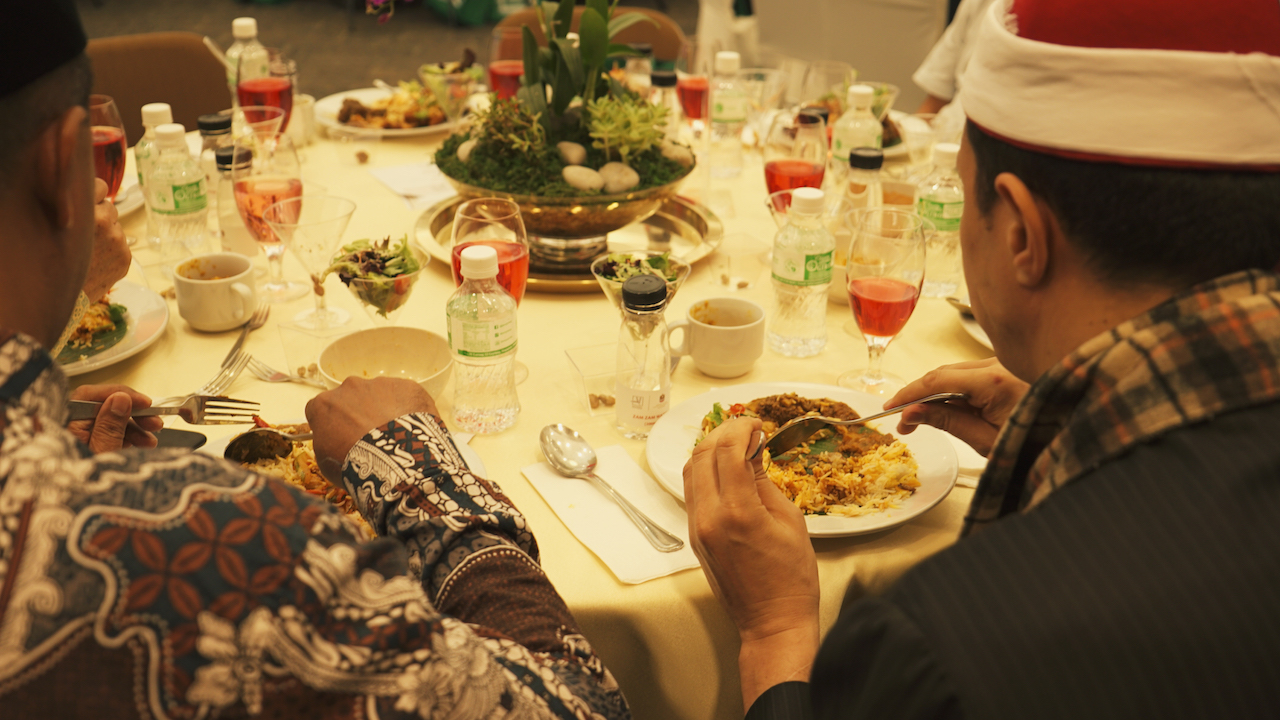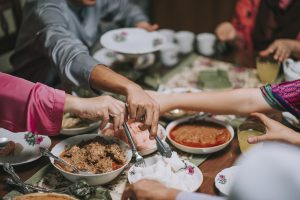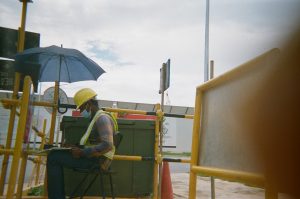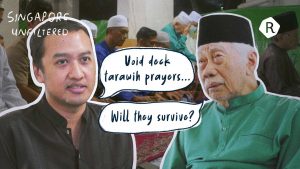It’s not every day that Muslims buka puasa with Mormons.
But on 27 May at The Church of Jesus Christ of Latter-day Saints (LDS), the Muslim missionary community from Jamiyah Singapore breaks fast with their Mormon counterparts.
To any outsider, the entire event might seem like the most random PR stunt. In reality, the Church and Jamiyah Singapore have a longstanding relationship of co-organising events, from a durian fruits day (that is random) to a visit by the Brigham Young University and LDS officials to Jamiyah Singapore.
This iftar, however, is the first interfaith community event of its kind in Singapore.
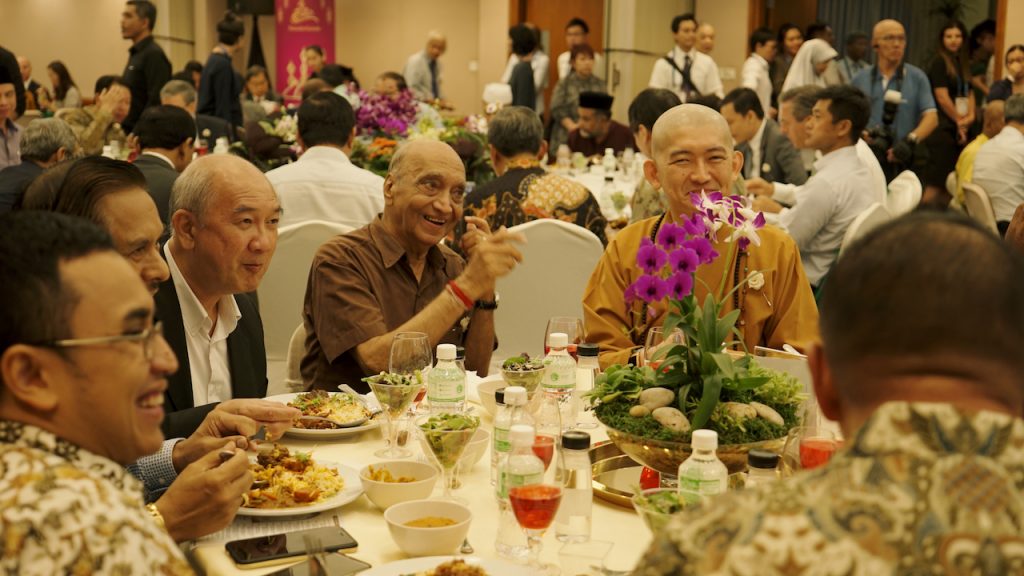
Highlights include performances by the combined choir comprising children from the Church and Jamiyah Children’s Home, video montages of images depicting interreligious harmony in Singapore, Sheikh Mustafa Syarqawi from Egypt reciting verses from the Quran, the Church donating $10,000 to Jamiyah Singapore for their charity efforts, and a frankly overwhelming number of speeches about focusing on the similarities that bind religions instead of the differences that divide.
Despite the notable differences between Muslims and members of the Church, the event reiterates that both faiths go through fasting both for spiritual purification and to feel closer to God. While Muslims fast for a month from sun up to sun down, members of the Church fast once a month for 24 consecutive hours.
I, on the other hand, am deeply ashamed that I’d tried AND FAILED SPECTACULARLY to fast before attending the event that evening. (I broke fast at 4 PM after going slightly delirious from hunger; my last meal had been dinner the night before at 6 PM.)
As I sit in the hall listening to Quran verses, I have nothing but sheer respect for the willpower and determination it must take to fast for 24 hours, what more a whole month.
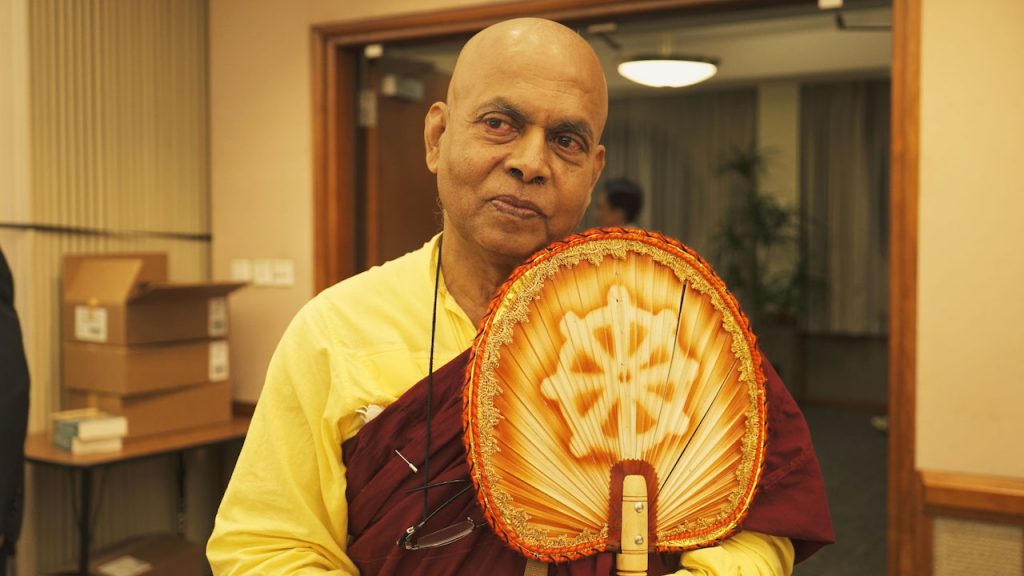
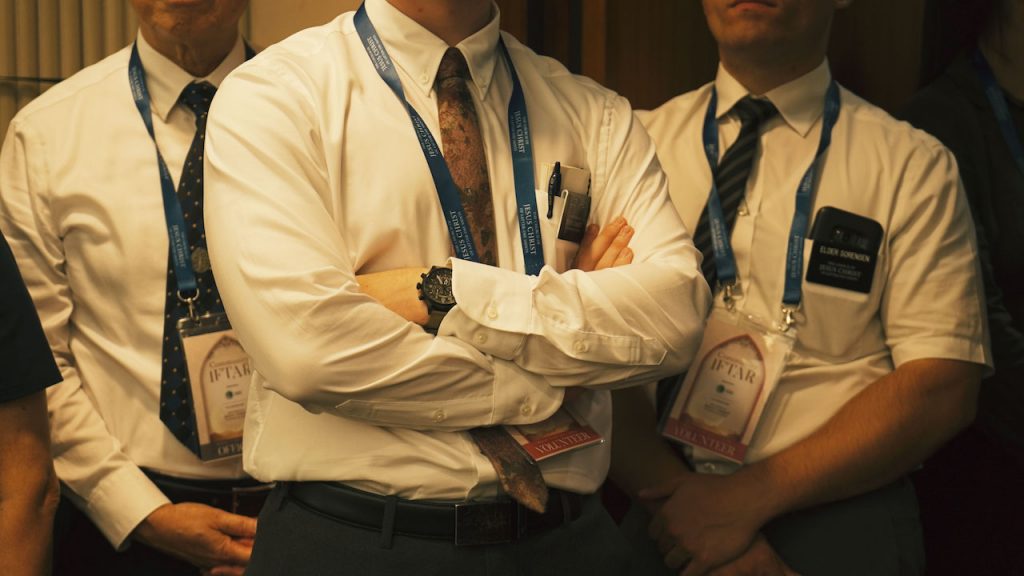
There are specially designated prayer rooms in the Church for the Muslims. And everywhere I turn, warm hugs are exchanged between members from each faith, as though they’re meeting an old friend or family member.
In the background, the combined choir belts out, “Everywhere around the world, our heartbeat sounds the same.”
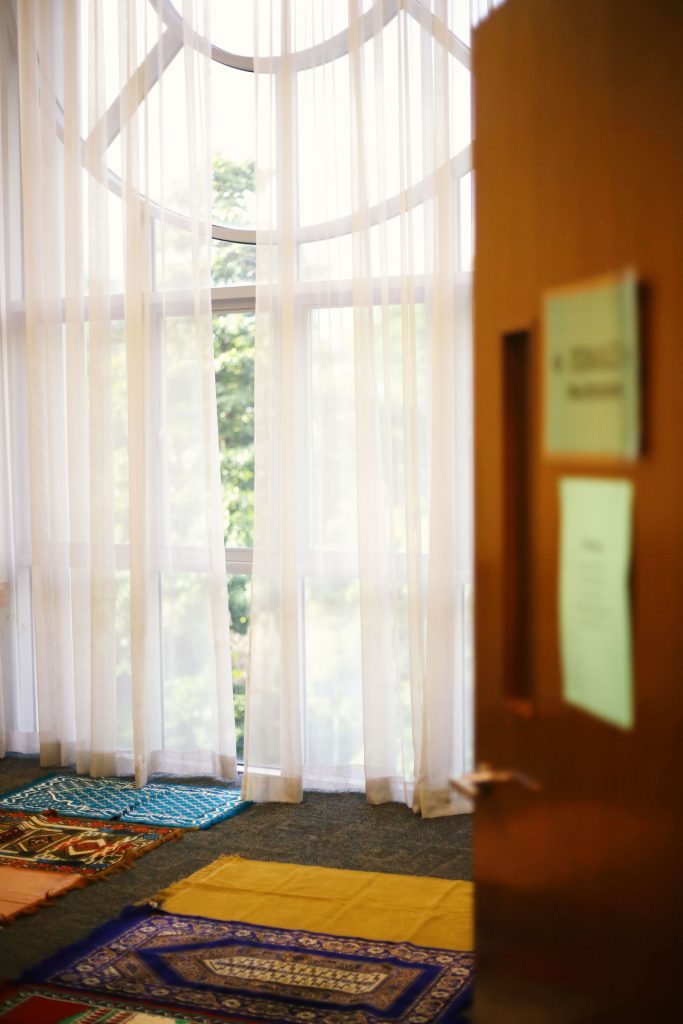
While held in the Church’s premises along Bukit Timah Road, the halal food is prepared by the Muslim community: think biryani rice, mutton masala, and the most freaking sedap coconut grated marble cake.
One of the beverages provided is a bottle of the supposedly holy Zamzam water (one per attendee at least in my dining hall), and I—an ignorant Chinese person—proceed to take a few swigs to wash down the biryani, only to later realise its value: the water sells on Carousell for, like, $5 for 250ml. (!!!)
In that moment, Mecca recoils from my disrespect.

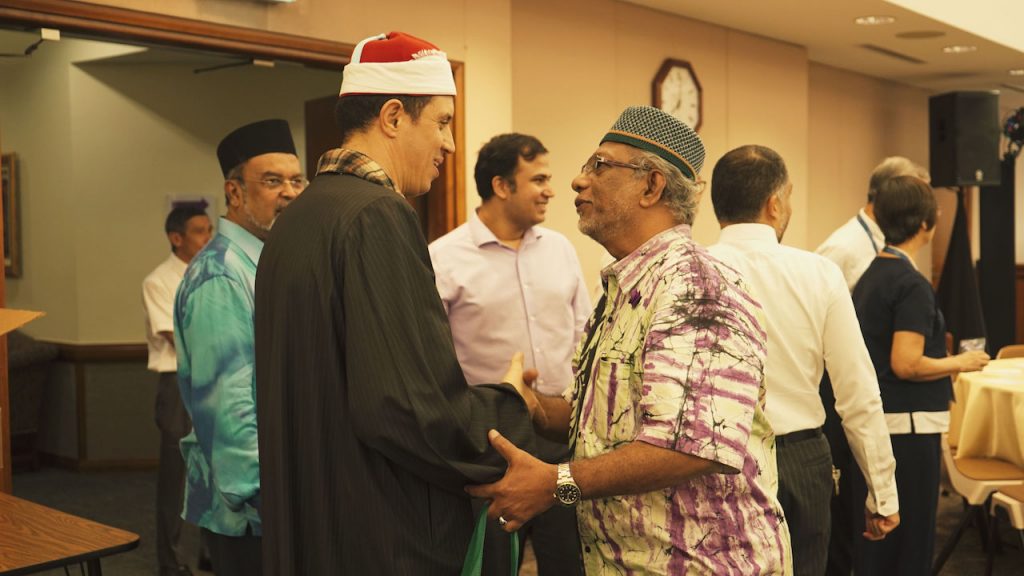
Jeeves used to come to the Church as a teenager before he moved to the US for university. Since the ‘80s, he’s been a Buddhist and a vegetarian, but that clearly doesn’t stop him from enjoying himself, as I catch him smiling throughout the event.
He, however, refrains from touching the meat-filled platter in front of him.
Just like the central theme of the event, he tells me that he “prefers to look at the similarities between religions than the differences”. As if on cue, another video montage comes on screen—this one shows the different religious groups in Singapore wishing Muslims a happy Ramadan.
As I’m about to make my move, I thank him for talking about his religious journey so candidly with a total stranger.
In return, he leaves me with a few poignant parting words: “Religion is so personal. Everyone takes their own journey.”
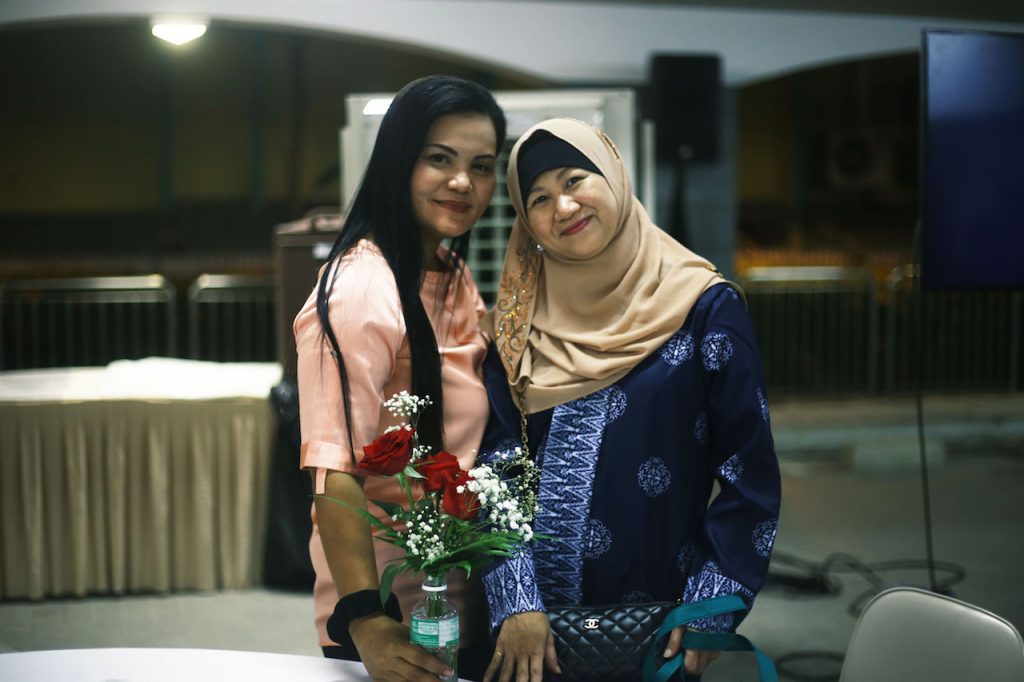
“Since converting to Islam, I’ve been doing more charity. They don’t just help their own. They help everyone, including the homeless,” she shares.
I tell her about my own internal conflict with religion, and just like Jeeves, she reminds me that religion is deeply personal for everyone. Then she wishes me luck in eventually finding my way “home”. It is an unexpectedly tender sentiment from a stranger, and enough to momentarily move this cynic.
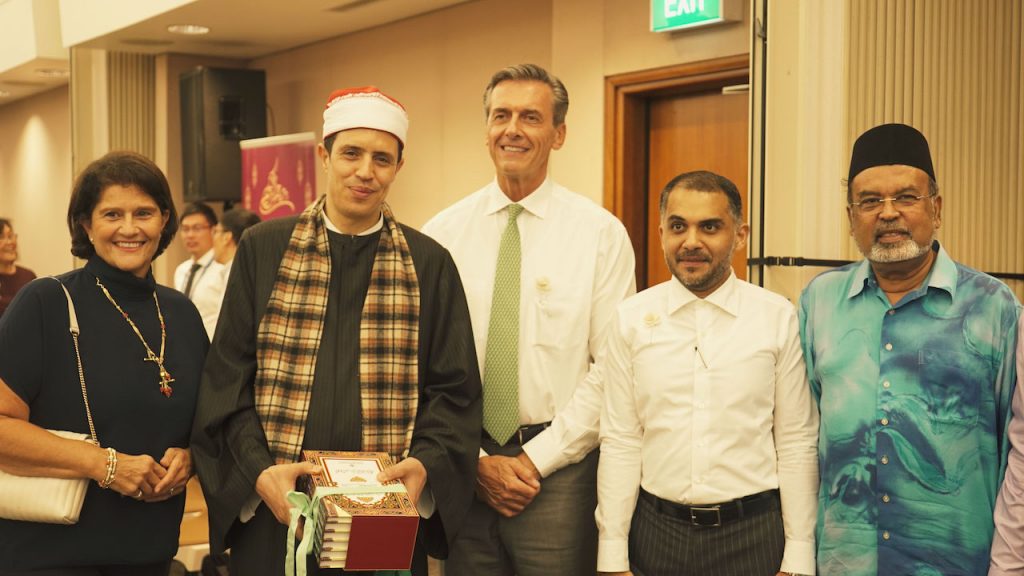
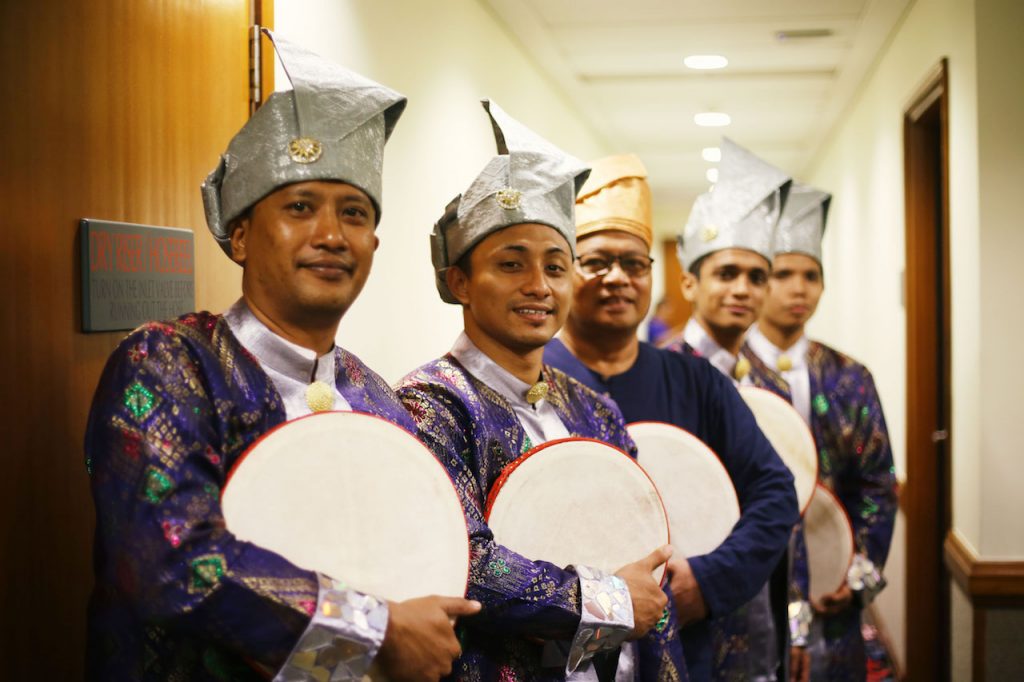
“You have to do good things before bad things happen,” he says, highlighting the importance of interfaith events in strengthening interreligious harmony in Singapore.
Even so, a single event cannot begin to address the deep-seated Islamophobia prevalent around the world, or even the racism in Singapore. Missionaries from the Church and Jamiyah Singapore might have broken fast together for one historical night, but it neither prevents nor solves the systemic discrimination, microaggressions, or implicit classism and racism that Muslims deal with regularly in school or at work.
Moreover, society’s biases or preconceived notions exist precisely because of each race and religion’s inherent differences. So while we celebrate the importance of similarities through community events or shared daily experiences, we shouldn’t overlook the ways in which they differ either.
In fact, if the diverse mix of attendees at the event with their rich individual histories is anything to go by, acknowledging and embracing the differences matter.
Otherwise, no amount of inclusive iftar would convert tolerance into true understanding and acceptance beyond the dining table.
